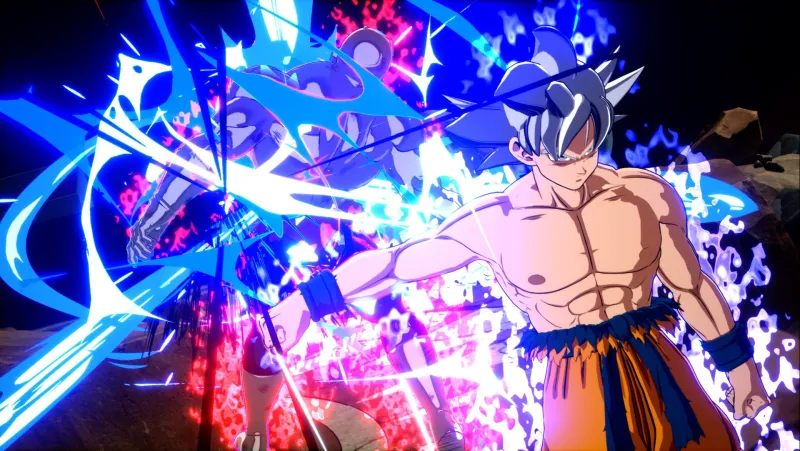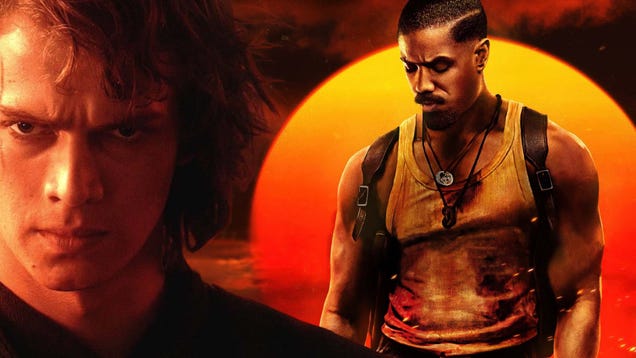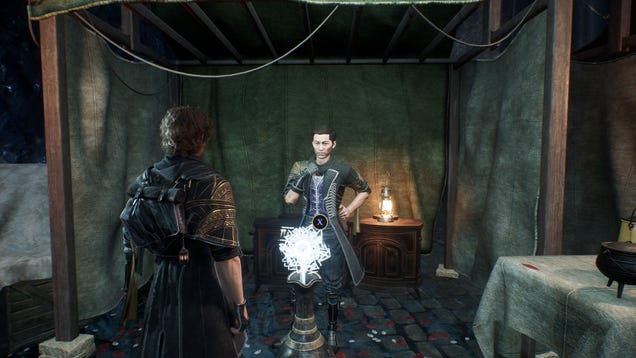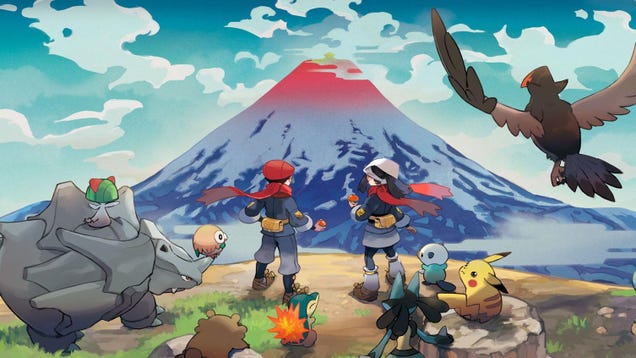
Platform: PlayStation 5, Xbox Series X/S, PC Publisher: Nacon Developer: Spiders Studios Release: 2025 Growing up, I didn't spend much time watching anime outside of the Pokémon animated series after school each day. However, friends kept telling me about this incredible show from Japan called Dragon Ball Z. While I have gone back and experienced the legendary anime in adulthood, as a kid, streaming wasn't an option, so outside of catching a few episodes airing on Toonami, I was extremely late to the DBZ anime party. However, in early 2003, I went to my local game rental shop and picked up Dragon Ball Z: Budokai. For this reason, Dragon Ball Z: Budokai became the primary way I interacted with the Dragon Ball Z storyline for several years. I loved the Dragon Ball Z: Budokai trilogy and learning about the series' various arcs through the fun 3D fighting series, but I missed out on the Budokai Tenkaichi series (known as Sparking! in Japan). But the anime storyline has come much further along since the last entry in 2010, which is why I'm so excited to jump back in and experience the various arcs through the upcoming Dragon Ball: Sparking! Zero. A modernized 3D fighting game with many of the mechanics and features present in the original Budokai Tenkaichi games, Dragon Ball: Sparking! Zero allows you to experience iconic and what-if battles in a variety of modes. The flagship mode seems to be Episode Battle, which focuses on the most iconic fights from the show. Several characters are playable in this mode, with each following their storylines from Dragon Ball Z all the way up to Dragon Ball Super. Because some characters are more involved in the story than others, some Episode Battle stories are longer than others, with Goku's serving as the longest campaign. Though I didn't get a chance to play Episode Battle, I did get to watch a Bandai Namco rep play through the early Raditz battle as Goku. After defeating Goku over Master Roshi's island, Raditz kidnaps Gohan, telling Goku he needs to kill 100 Earthlings if he ever wants to see his son again. Goku isn't going to do that, so he starts deciding how to go after Raditz. It's here that the game's What-If scenarios come into play. You can join Piccolo, the canonical option, or go it alone. If you decide to go alone, you cannot switch between characters mid-battle, but you might get special cutscenes and dialogue you wouldn't get in the canon path. You can also defy canon by winning a fight you're supposed to lose, which also grants special cutscenes. On top of Episode Battle, you can also participate in Custom and Bonus Battles. Custom Battles allow you to create, play, and share your own battle scenarios, including which characters, environments, and win conditions are involved. Bonus Battles are special battles created by the developers that you can play through – some even have cutscenes or different win conditions. Bandai Namco has also included split-screen battles within the Hyperbolic Time Chamber for when you want to duke it out on the couch with your friends. My hands-on session takes place through a series of straightforward classic fights. You can play with standard controls or select the classic controls meant to emulate the feeling of the older Budokai Tenkaichi games. I'm also given the choice to select the stage and background music playing while the battle unfolds. Each side of the fight offers three character slots, which can be filled with members of the absolutely massive roster of fighters. From a dizzying number of Goku and Vegeta versions to characters like Broly, Mr. Satan, and Trunks, even in this incomplete form, Bandai Namco seems to be going all out with the roster. Once in the stage, you can swap out characters using one side of the d-pad and trigger transformations with the other. You can also charge your Ki, which allows you to perform powerful and nimble maneuvers and attacks. When you overload your Ki gauge, you can perform Super attacks, like the Super Kamehameha, which even causes the weather to change. Speaking of environments, the destructibility was on full display during fights in the city, in a mountainous region, and even in a stadium. Buildings topple, mountains crumble, and crowds evacuate as the battle gets more and more out of hand. The gameplay feels strong in action; I loved flying around as the various characters and unleashing their most powerful attacks in their stronger forms. It will take a while for me to reacclimate myself with flying around the 3D space, but I loved beating my enemies into submission before blasting them with powerful projectiles. I'm even more excited to play through the Episode Battles to learn an abridged version of what has happened in the story since I fell off watching the anime (yes, I know I could just watch the anime, as well). I loved my time with Dragon Ball: Sparking! Zero. After playing through a few over-the-top fights with some of my favorite heroes and villains from the series, I immediately got the itch to revisit the earlier Budokai and Budokai Tenkaichi games. However, I will probably hold off, as we don't have much longer to wait, as Dragon Ball: Sparking! Zero comes to PlayStation 5, Xbox Series X/S, and PC on October 11. Purchase
Platform:
PlayStation 5, Xbox Series X/S, PC
Publisher:
Nacon
Developer:
Spiders Studios
Release:
2025
Growing up, I didn’t spend much time watching anime outside of the Pokémon animated series after school each day. However, friends kept telling me about this incredible show from Japan called Dragon Ball Z. While I have gone back and experienced the legendary anime in adulthood, as a kid, streaming wasn’t an option, so outside of catching a few episodes airing on Toonami, I was extremely late to the DBZ anime party. However, in early 2003, I went to my local game rental shop and picked up Dragon Ball Z: Budokai. For this reason, Dragon Ball Z: Budokai became the primary way I interacted with the Dragon Ball Z storyline for several years.
I loved the Dragon Ball Z: Budokai trilogy and learning about the series’ various arcs through the fun 3D fighting series, but I missed out on the Budokai Tenkaichi series (known as Sparking! in Japan). But the anime storyline has come much further along since the last entry in 2010, which is why I’m so excited to jump back in and experience the various arcs through the upcoming Dragon Ball: Sparking! Zero.
A modernized 3D fighting game with many of the mechanics and features present in the original Budokai Tenkaichi games, Dragon Ball: Sparking! Zero allows you to experience iconic and what-if battles in a variety of modes. The flagship mode seems to be Episode Battle, which focuses on the most iconic fights from the show. Several characters are playable in this mode, with each following their storylines from Dragon Ball Z all the way up to Dragon Ball Super. Because some characters are more involved in the story than others, some Episode Battle stories are longer than others, with Goku’s serving as the longest campaign.
Though I didn’t get a chance to play Episode Battle, I did get to watch a Bandai Namco rep play through the early Raditz battle as Goku. After defeating Goku over Master Roshi’s island, Raditz kidnaps Gohan, telling Goku he needs to kill 100 Earthlings if he ever wants to see his son again. Goku isn’t going to do that, so he starts deciding how to go after Raditz. It’s here that the game’s What-If scenarios come into play. You can join Piccolo, the canonical option, or go it alone. If you decide to go alone, you cannot switch between characters mid-battle, but you might get special cutscenes and dialogue you wouldn’t get in the canon path. You can also defy canon by winning a fight you’re supposed to lose, which also grants special cutscenes.
On top of Episode Battle, you can also participate in Custom and Bonus Battles. Custom Battles allow you to create, play, and share your own battle scenarios, including which characters, environments, and win conditions are involved. Bonus Battles are special battles created by the developers that you can play through – some even have cutscenes or different win conditions. Bandai Namco has also included split-screen battles within the Hyperbolic Time Chamber for when you want to duke it out on the couch with your friends.
My hands-on session takes place through a series of straightforward classic fights. You can play with standard controls or select the classic controls meant to emulate the feeling of the older Budokai Tenkaichi games. I’m also given the choice to select the stage and background music playing while the battle unfolds. Each side of the fight offers three character slots, which can be filled with members of the absolutely massive roster of fighters. From a dizzying number of Goku and Vegeta versions to characters like Broly, Mr. Satan, and Trunks, even in this incomplete form, Bandai Namco seems to be going all out with the roster.
Once in the stage, you can swap out characters using one side of the d-pad and trigger transformations with the other. You can also charge your Ki, which allows you to perform powerful and nimble maneuvers and attacks. When you overload your Ki gauge, you can perform Super attacks, like the Super Kamehameha, which even causes the weather to change. Speaking of environments, the destructibility was on full display during fights in the city, in a mountainous region, and even in a stadium. Buildings topple, mountains crumble, and crowds evacuate as the battle gets more and more out of hand.
The gameplay feels strong in action; I loved flying around as the various characters and unleashing their most powerful attacks in their stronger forms. It will take a while for me to reacclimate myself with flying around the 3D space, but I loved beating my enemies into submission before blasting them with powerful projectiles. I’m even more excited to play through the Episode Battles to learn an abridged version of what has happened in the story since I fell off watching the anime (yes, I know I could just watch the anime, as well).
I loved my time with Dragon Ball: Sparking! Zero. After playing through a few over-the-top fights with some of my favorite heroes and villains from the series, I immediately got the itch to revisit the earlier Budokai and Budokai Tenkaichi games. However, I will probably hold off, as we don’t have much longer to wait, as Dragon Ball: Sparking! Zero comes to PlayStation 5, Xbox Series X/S, and PC on October 11.





